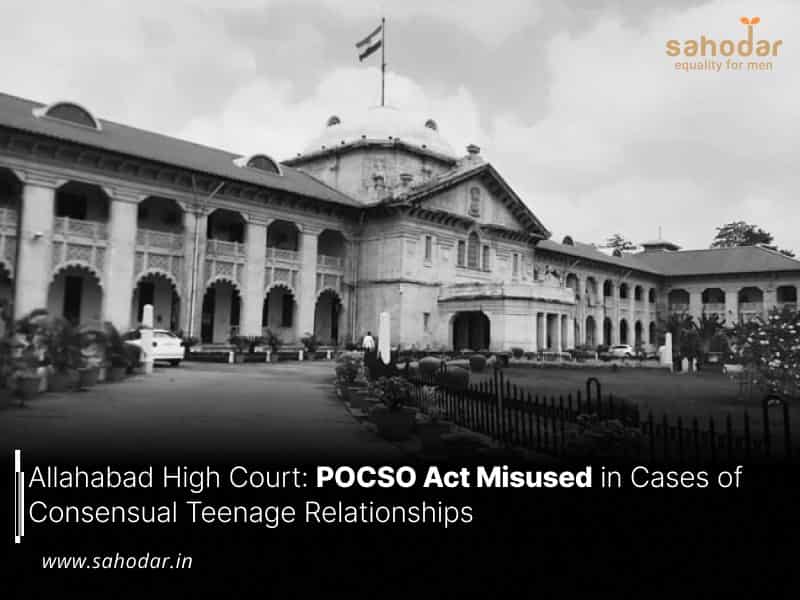The judicial system should aim to balance the protection of minors with the recognition of their autonomy in certain contexts, the Court stressed.
The Allahabad High Court recently noted that the Protection of Children from Sexual Offences (POCSO) Act is being misapplied in cases involving teenagers in consensual romantic relationships [Satish Alias Chand vs State of UP and 3 Others].
Justice Krishan Pahal emphasized the need for a nuanced approach and careful judicial consideration in such cases to ensure appropriate justice.
The Court highlighted the challenge of distinguishing between genuine cases of exploitation and those involving consensual relationships.
“This court has every now and then expressed concern regarding the application of the Protection of Children from Sexual Offences (POCSO) Act on adolescents. While the Act’s primary objective is to protect children under the age of majority (18) from sexual exploitation, there are cases where it has been misused, particularly in consensual romantic relationships between teenage persons,” the Court said.
In addressing such cases, the Court emphasized the importance of the following:
- Assessing the context: Each case should be evaluated based on its individual facts and circumstances. The nature of the relationship and the intentions of both parties should be thoroughly examined.
- Considering the victim’s statement: The statement of the alleged victim should be given due weight. If the relationship is consensual and based on mutual affection, this should be considered in decisions regarding bail and prosecution.
- Avoiding perversion of justice: Ignoring the consensual nature of a relationship can lead to unjust outcomes, such as wrongful imprisonment. The judicial system should strive to balance the protection of minors with the recognition of their autonomy in certain contexts, with age being an important factor.
- Judicial discretion: Courts should exercise their discretion wisely, ensuring that the application of the POCSO Act does not inadvertently harm the individuals it is meant to protect.
The Court made these observations while granting bail to an accused in a POCSO Act case.
The accused, Satish alias Chand, who was arrested on January 5 this year, had allegedly “enticed away” the informant’s minor daughter in June 2023.
Seeking bail, Satish’s counsel argued that he had been falsely implicated, as the victim was a consenting party according to her own statement, and she was 18 years old.
The Court was informed that the accused and the victim were in love and, out of fear of their parents, had eloped and married at a temple. It was also revealed that the victim was six months pregnant at the time and has since given birth. The counsel for the accused stated that Satish intended to raise the child and keep his wife with him.
The Court noted that the victim’s age was confirmed to be 18 years based on the ossification test.
The State had not presented exceptional circumstances to justify denying bail to the accused, the Court concluded.
“It is settled principle of law that the object of bail is to secure the attendance of the accused at the trial. No material particulars or circumstances suggestive of the applicant fleeing from justice or thwarting the course of justice or creating other troubles in the shape of repeating offences or intimidating witnesses and the like have been shown by learned AGA for the State,” the single-judge stated.
Consequently, the Court granted the accused’s bail application on the condition that he would take care of the victim and their child.
“The applicant shall deposit (fixed deposit) a sum of ₹2,00,000 in the name of new born child of the victim till her attaining the age of majority within a period of six months from the date of release from jail,” the Court further directed.

